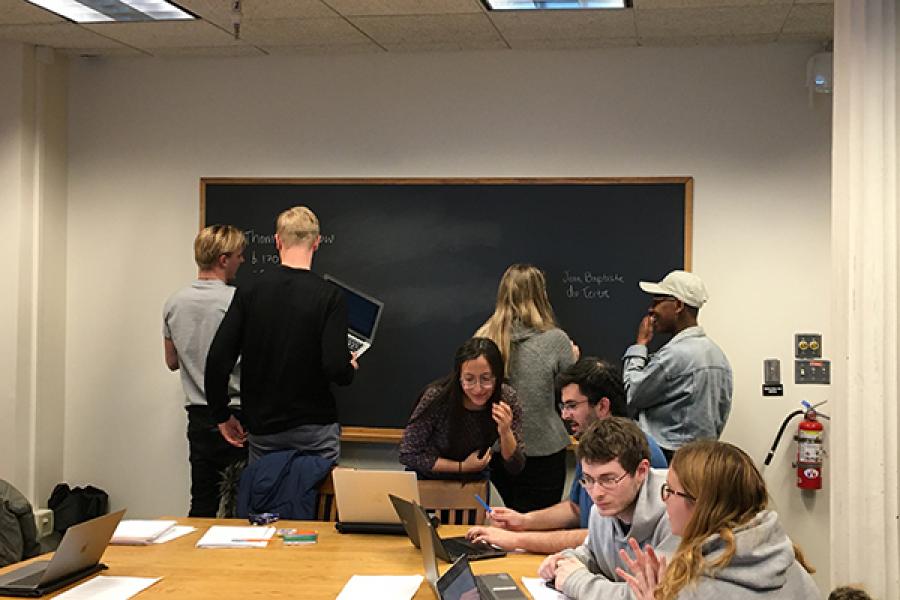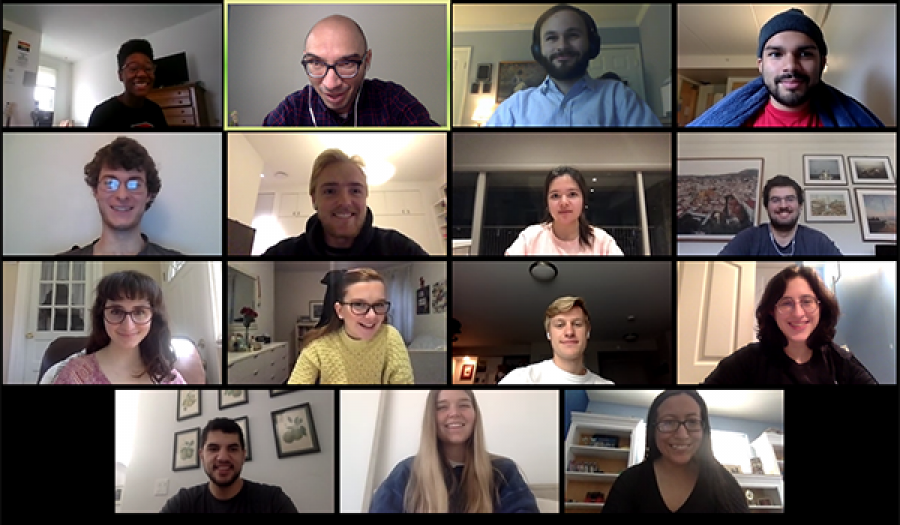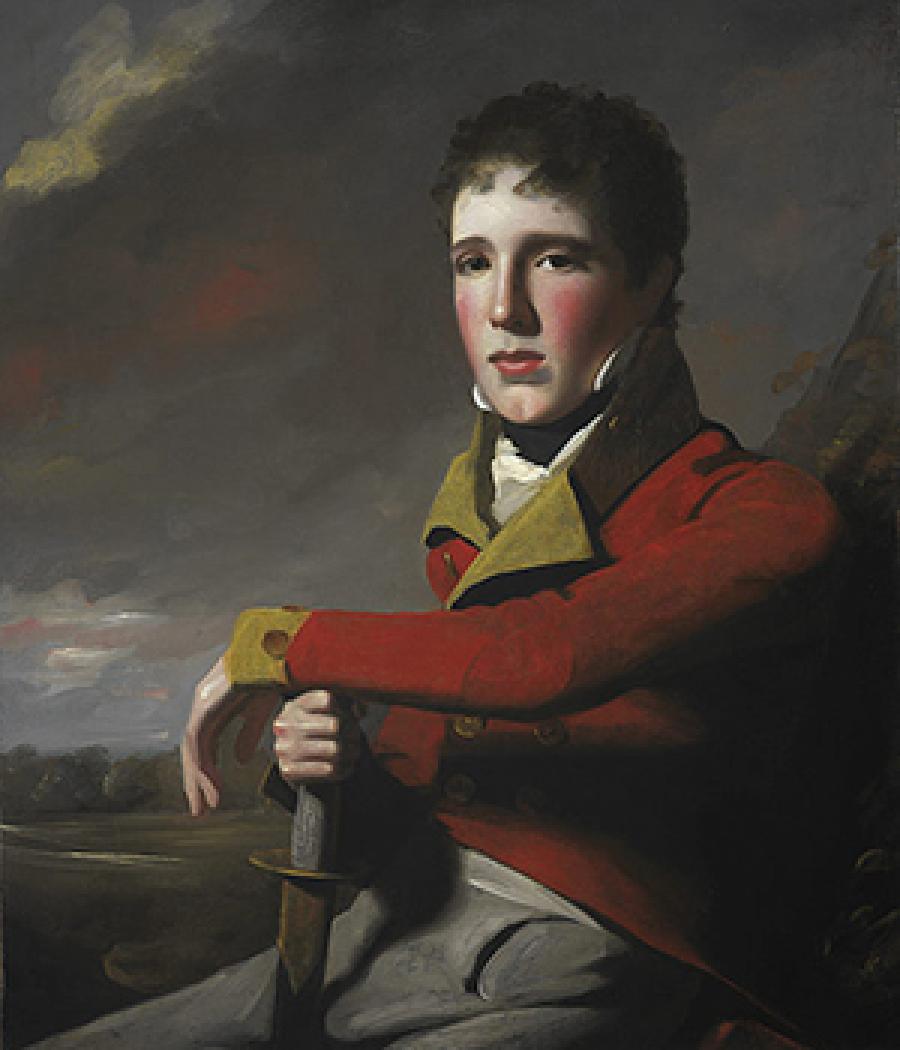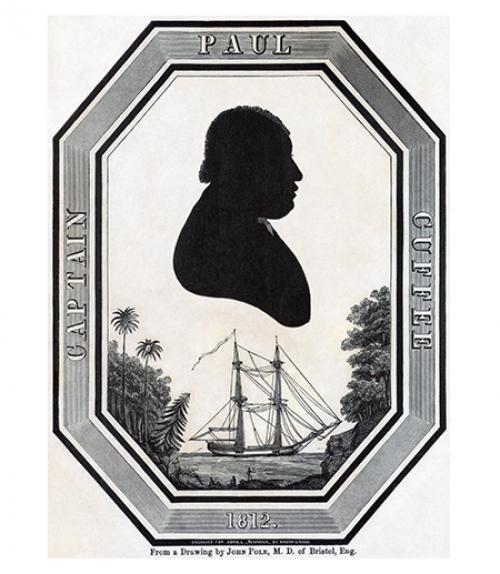As the transition to online learning proved to be a curriculum adjustment for all courses, HIST 2010 Atlantic Travelers was able to continue with its innovative plan to showcase students’ work virtually in an online exhibit.
Atlantic Travelers focused on the experiences of the many types of travelers between 1492 and the 19th century who crossed the Atlantic Ocean in multiple directions. The class’ online exhibit highlights the diverse range of experiences of the travelers, which included conquistadors (male and female, white and black), indigenous people, sailors, pirates, military adventurers, merchants, religious missionaries, and slaves.
“The world has been connected for centuries, and oceans, far from being insurmountable barriers, have always been highways connecting distant lands,” said Ernesto Bassi, associate professor of history, who taught the class, adding that people of varied socio-racial and socio-economic backgrounds were crossing the ocean during this time.
While still on campus earlier in the semester, each student in the course selected a traveler, and the class then visited the Herbert F. Johnson Museum of Art to discuss and pinpoint key elements of their museum exhibits, such as the role artwork labels play in accompanying a picture. The class then visited Uris Library and explored online resources and primary sources such as letters and personal documents regarding early modern Atlantic history, with the help of research librarian Virginia Cole. The workshop led by Cole helped students curate the exhibit.
Bassi said the move to remote learning made their work a bit tricky – they had to cancel plans to learn digital mapping on campus and use Google maps instead — but the class was determined to find a way to collaborate and finish their projects.
The class met twice a week on Zoom to proceed with their work, even though these online meetings happened in the middle of the night or very early morning for two students who had relocated to Japan and New Zealand.
“The multiple Atlantic crossings of our 14 travelers were sometimes tedious and monotonous and other times eventful and traumatic,” students wrote on the website. “The Atlantic crossing, however, was always laden with danger and a catastrophic outcome could never be discarded. The Atlantic that our travelers inhabited and traversed was also socially and politically malleable, and therefore predictable only in its unpredictability.”
For April Townson ’20, the online exhibit was one of the main reasons she took the class.
“The promise of working towards an online exhibit was particularly enticing, as I had never really been in a class before with this type of hands-on experience and application of the type of research and writing I do in all of my classes,” she said. “It was both exciting and daunting to know that whatever we wrote would not only be read by someone other than our professor, but would be available online well after the class ended. I tend to be a very long-winded writer, so it was a worthwhile challenge to write concise and informative exhibit entries as opposed to 20+ page research papers.”
When Townson found out that Cornell was moving to remote learning, she spent some time photographing pages of reference books from the library so that she’d have the information on Paul Cuffe, her traveler, that she needed to complete her work.
Townson, an English and history major, chose to research Cuffe, a wealthy black/Native American man of the late 18th century who traversed the Atlantic from the U.S. to Africa. Among the interesting stories she discovered about his life, she learned of a challenge Cuffe had trying to expand his whaling and shipping business farther south in the U.S.
“He took a ship to Vienna, Maryland in order to join the corn trade, but had to spend several days proving to the local populace that he and his crew were sailors and traders, not runaway slaves as they had presumed,” Townson said.
“I am particularly interested in law and criminal justice, so I was looking for historical figures from that vein, and I ultimately focused on fraudsters,” said Jack Mindich ’21, about the process of choosing a Scottish adventurer to write about. ”Gregor MacGregor, my traveler, essentially convinced Europeans that a Central American king had vested him with the power to sell land parcels from a fully functioning society to potential immigrants from Europe. In reality, the land was essentially uninhabited, but he still was able to draw shiploads of victims to the ‘colony,’ many of whom died either during the passage or while attempting to survive in the wilderness.”
But although he was cheating people, MacGregor, as Mindich discovered, was also a war hero during Simon Bolivar’s revolution in Venezuela against Spain. “While the era certainly showed how connected the globe was, MacGregor also recognized that, as quickly as the world was becoming globalized, information flow had not caught up. That information gulf made perpetrating fraud much easier, and he was able to spin that to his advantage,” Mindich said.
Georgina Cedeno ’21 stumbled across her traveler, Isabel de Guevara, during other readings. “There was an excerpt of a letter Guevara wrote to the Spanish Crown asking for compensation on account of her deeds to save the fleet of conquistadors from starvation and attacks from the indigenous communities,” Cedeno said. “To me, her letter demonstrated a completely different narrative about conquistadors from what is presented by history textbooks and popular media, and I wanted to shed light on a woman’s perspective in the Age of Exploration.”
Bassi said his students learned about creative and intellectually stimulating ways of presenting historical knowledge. “I hope they left the class with an appreciation of the value of collaboration,” he said. “This group was really good at working together and helping each other. This collaborative spirit made the class a pleasure.”







